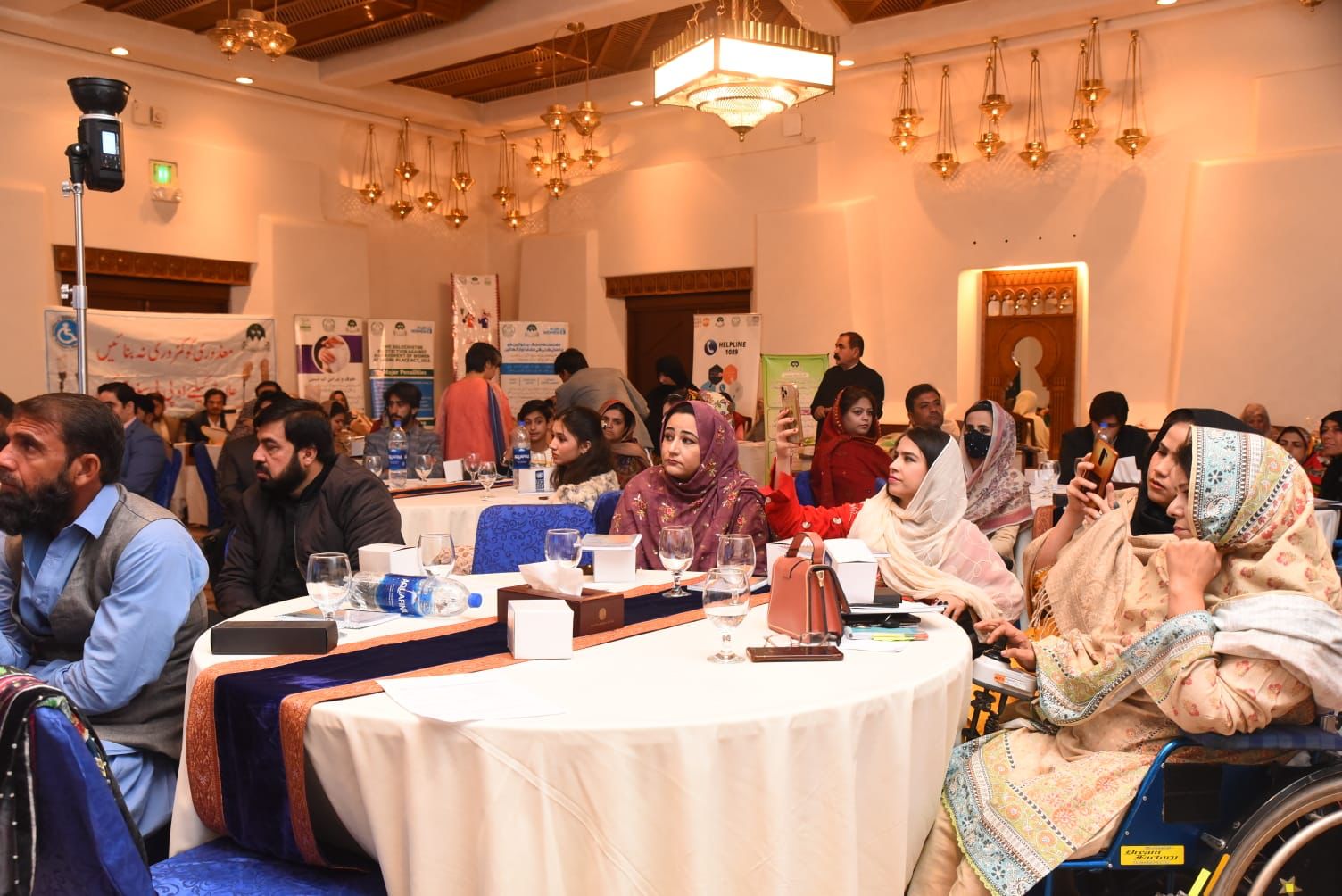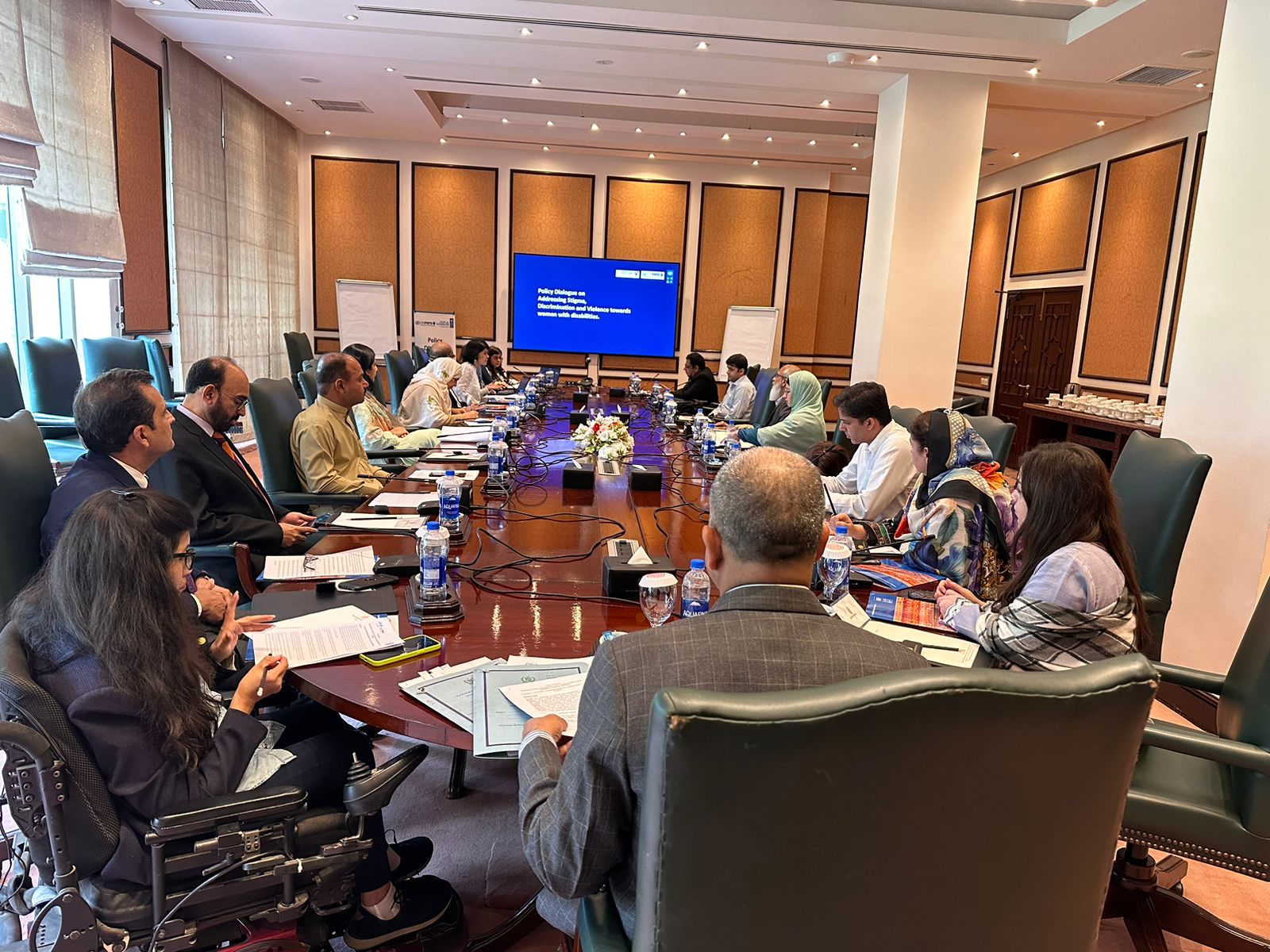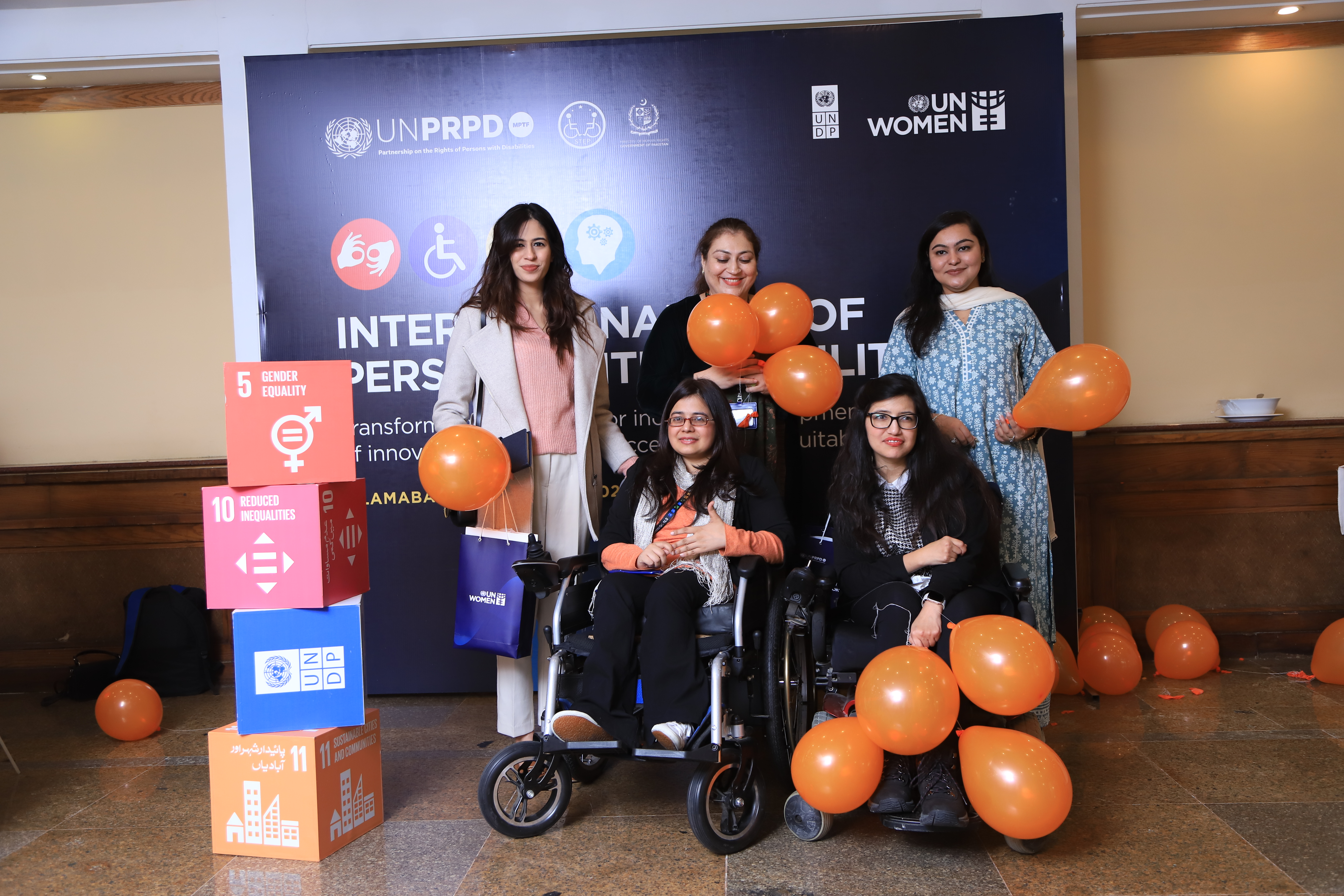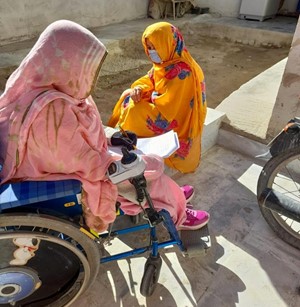Addressing Stigma, Discrimination, and Violence against Women with Disabilities
August 9, 2023

Diversity, equity and inclusion: towards inclusive employment.
Context
The most recent data from NADRA reflects that in 2021, 371,833 persons with disabilities were registered in Pakistan. This data is not gender disaggregated; however, in the 1998 consensus, it was recorded that 41.6% are women with disability of the total population of persons with disabilities (PWDs). PWDs consistently face significant issues, however, these issues are further exacerbated for women with disabilities due to their vulnerable position in society. In Pakistan’s context, women with disabilities often face multiple layers of discrimination, stigma, and violence, which hinder their ability to fully participate in society, as independent members, capable of making key decisions.
Discussion and Insights
In Pakistan, the United Nations Development Programme (UNDP), UN Women in collaboration with the United Nations Partnership on the Rights of person with Disabilities (UNPRPD) implemented a program on Addressing Stigma, Discrimination, and Violence against Women with Disabilities (ASDWD) between 2022 and 2023.
The Project was aimed at reducing stigma and discrimination against women and girls with disabilities through evidence-based interventions and changing the attitudes and behaviour of both rights holders and duty bearers in Pakistan. This Project has been piloted in three developing countries including Samoa, Palestine, and Moldova in addition to Pakistan.
The Project undertook a two-pronged approach: it initiated the development of an inclusive Survey Toolkit; the Women with Disability Stigma Inventory (WDSI) to generate evidence of disability-related stigma and discrimination and supplemented this data with behaviour change interventions.
WDSI results reflected significant challenges that women with disability face in accessing the economic market. Some of these include:
- Only 24% of women with disabilities out of those who took part in the survey, were aware of their human rights.
- 53% of respondents faced some level of exclusion or had been denied access to educational or skills training opportunities.
- 52.4% faced some level of exclusion or had been denied employment.
- Nearly 50% were actively denied access to digital communication means such as computers, the internet, or mobile phones.
- Over 50% of respondents faced exclusion in accessing bank accounts.
- Over 65.5% of respondents are unable to access transport services and public places.
- 67% of women with disability responded that they have faced verbal abuse such as being teased, laughed at or were made the subject of gossiping, yelled at, insulted, or threatened.
- 46% of respondents stated that they have been physically abused such as pushed, hit, or hurt in other ways, and their belongings have been stolen or destroyed.
- 43% of respondents shared that physical abuse is inflicted by their own family members.
- 70% of the respondents believed that this exclusion or denial is happening because of their disability and their gender.
Against this background, and to strategically combat gender-based violence in Pakistan, UNDP, UN Women and UNPRPD conducted a Policy Dialogue on Addressing Stigma and Discrimination against Women with Disabilities with the government and private sectors.

Policy dialogue on ASDWD with Govt and private stakeholders.
Against this background, and to strategically combat gender-based violence in Pakistan, UNDP, UN Women and UNPRPD conducted a Policy Dialogue on Addressing Stigma and Discrimination against Women with Disabilities with the government and private sectors.
The dialogue focused on the following streams: streamlining policies towards quota implementation, development of anti-discriminatory livelihood and entrepreneurship guidelines, access to justice and remedial mechanism on workplace harassment, self-awareness and, disability inclusion especially for women with disabilities.
An enriching discussion was conducted wherein various areas of improvement and effective feasibilities were shared. This included:
- Improving compliance through incentives or imposition of stricter penalties,
- Ensuring accessibility and standardisation in infrastructure at private and public buildings,
- Improving capacity building and sensitisation, behavioural change interventions and encouraging inclusive approaches,
- Strengthening data collection and reporting and continued dialogue and collaboration.
Participants shared that ensuring disability compliance within the public and private domain requires active government facilitation. They emphasized the need for providing access to information, capacity building, expert advisory services, and planning support to women with disabilities to provide avenues through which they can be supported in accessing employment.
Additionally, providing easy loans, job opportunities, and financial inclusion for women with disabilities can help them become financially independent and participate in the economy.

International Day of Persons with Disabilities
To help women with disabilities, find better job opportunities, the participants talked about creating a Job Centre with special technologies to assist them. This center would be a hub for providing information, making referrals, and connecting these women to job opportunities. Incentives may be offered to both private and public sectors to support the center and unlock the untapped potential of women with disabilities.
The discussion highlighted the importance of making compliance with disability regulations voluntary through incentives. To encourage compliance, participants suggested rewarding organizations with tax rebates and including them in a digital database that tracks disabled employees, promoting transparency and positive learning from each other.
Moreover, infrastructure accessibility and standardization were highlighted as crucial factors in promoting inclusivity. Recommendations included developing universal accessibility standards applicable to infrastructure and assistive technologies.
Furthermore, it is crucial to address behavioural changes at both the individual and organizational levels to promote the inclusion of women with disabilities. The dialogue emphasized the significance of embracing inclusive approaches in education, employment, and infrastructure. The importance of involving women with disabilities in decision-making processes and considering their perspectives and experiences when developing policies was emphasized.

An enumerator asking and filling WDSI survey/questionnaire from participants
Conclusion
This Policy Dialogue brought to light the challenges faced by women with disabilities and provided recommendations for transformational change. By implementing these outcomes, such as the development of comprehensive guidelines, government facilitation of private sector businesses, and the establishment of job centres, Pakistan can create an inclusive society that empowers women with disabilities. Through continued collaboration and concerted efforts, we can strive towards a future where every woman, regardless of disability, is treated with dignity, respect, and equal opportunities.
___________________
The project was carried out in collaboration with various stakeholders, including UNDP's Decentralization, Human Rights and Local Governance (DHL) project, UN Women, UNHCHR, University College London (UCL), Ulster University,, and government stakeholders such as Pakistan's Ministry of Human Rights (MoHR), Social Welfare Department (SWD), Women Development Department; Balochistan (WDD), Balochistan Commission on the Status of Women (BCSW), Ombudsperson's Office, as well as private and public sectors, including National Incubation Center (NIC), State Bank of Pakistan (SBP), Telenor Pakistan (TP), NUST University, Mobilink Microfinance Bank, and Organizations of Persons with Disabilities (OPDs) such as Special Talent Exchange Program (STEP), Network of Organizations Working for People with Disabilities Pakistan (NOWPDP), Disability Welfare Organization (DWA), HANDS, The Special Ones, Socio Pakistan, and National Forum of Women with Disability (NFWWD).

 Locations
Locations

